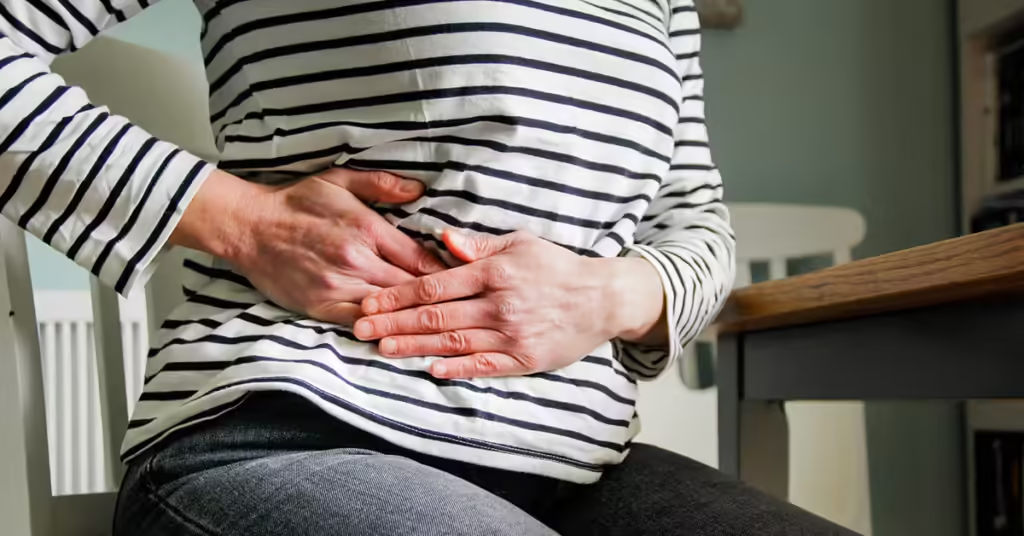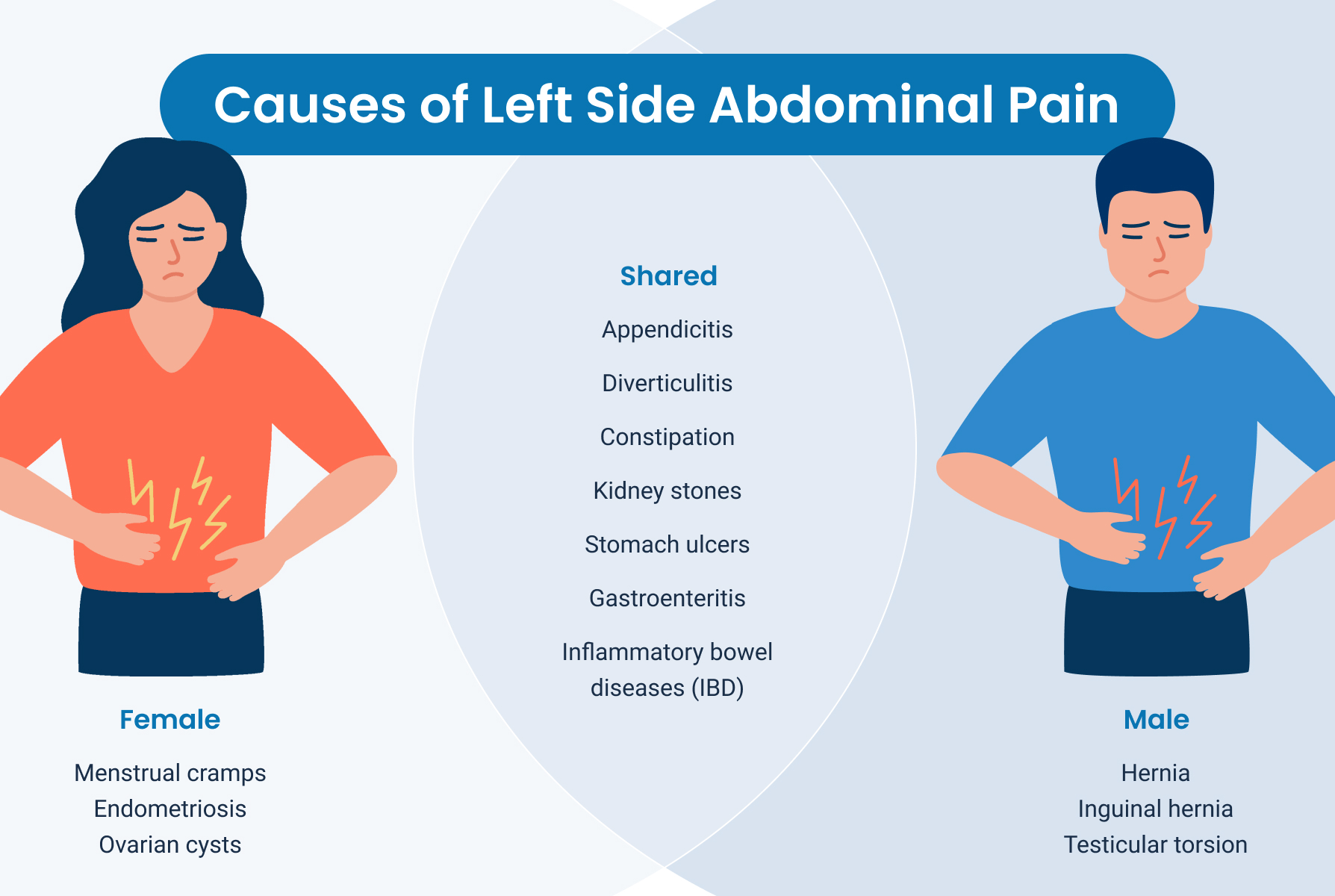- Common Causes of Lower Belly Pain
- Digestive Issues
- Urinary Tract Infections
- Reproductive System Problems
- Digestive System-Related Causes
- Irritable Bowel Syndrome (IBS)
- Constipation
- Gastroenteritis
- Urinary System-Related Causes
- Bladder Infections
- Kidney Stones
- Interstitial Cystitis
- Reproductive System-Related Causes
- Menstrual Cramps
- Endometriosis
- Ovarian Cysts
- Other Potential Causes
- Appendicitis
- Hernias
- Muscle Strain
- Symptoms Accompanying Lower Belly Pain
- Severity and Duration of Pain
- Associated Symptoms
- Diagnosing Lower Belly Pain
- Medical History and Physical Examination
- Imaging Tests
- Laboratory Tests
- When to Seek Medical Attention
- Warning Signs
- Emergency Situations
- Treatment Options for Lower Belly Pain
- Home Remedies
- Over-the-Counter Medications
- Prescription Medications
- Lifestyle Changes for Managing Lower Belly Pain
- Dietary Adjustments
- Exercise and Physical Activity
- Stress Management
- Preventive Measures
- Regular Health Check-Ups
- Hydration and Healthy Diet
- Maintaining a Healthy Weight
- Special Considerations for Women
- Pregnancy-Related Pain
- Menstrual Cycle Considerations
- Hormonal Imbalances
- Real-Life Experiences
- Success Stories
- Common Challenges
- Conclusion
- Recap of Key Points
- Final Thoughts
- FAQs
- Can stress cause lower belly pain?
- How can I tell if my lower belly pain is serious?
- What foods should I avoid to prevent lower belly pain?
- Can lower belly pain be related to my menstrual cycle?
- Are there natural remedies for lower belly pain?
Understanding Lower Belly Pain: Causes, Treatments, and Prevention

Introduction
Lower belly pain is a common issue that can affect anyone at any age. It can range from a mild, dull ache to severe, debilitating pain. Understanding the causes of lower belly pain is crucial to finding effective treatments and preventive measures. Let’s explore the various causes, symptoms, and treatments for lower belly pain to help you manage this discomfort effectively.
Common Causes of Lower Belly Pain
Lower belly pain can be caused by a variety of issues related to the digestive, urinary, and reproductive systems.
Digestive Issues
Digestive problems are a frequent cause of lower belly pain. Conditions like irritable bowel syndrome (IBS), constipation, and gastroenteritis can lead to significant discomfort in the lower abdomen.
Urinary Tract Infections
Urinary tract infections (UTIs) are another common cause. They can cause pain in the lower belly as well as a burning sensation during urination.
Reproductive System Problems
For women, lower belly pain can often be related to the reproductive system. Menstrual cramps, endometriosis, and ovarian cysts are some of the common conditions that can cause pain in this area.
Digestive System-Related Causeshttps://my.clevelandclinic.org/health/articles/7040-gastrointestinal-diseases
Irritable Bowel Syndrome (IBS)
IBS is a chronic condition that affects the large intestine. Symptoms include cramping, abdominal pain, bloating, gas, and diarrhea or constipation.
Constipation
Constipation can cause a feeling of fullness or pressure in the lower abdomen, leading to discomfort or pain.
Gastroenteritis
Gastroenteritis, often referred to as the stomach flu, can cause inflammation of the stomach and intestines, resulting in lower belly pain, diarrhea, and vomiting.
Urinary System-Related Causes
Bladder Infections
Bladder infections, a type of UTI, can cause pain and discomfort in the lower abdomen, frequent urination, and a burning sensation when urinating.
Kidney Stones
Kidney stones can cause severe pain in the lower abdomen and back, often accompanied by nausea and vomiting.
Interstitial Cystitis
This chronic condition causes bladder pressure and pain, and sometimes pelvic pain. The severity of symptoms can vary.
Reproductive System-Related Causes
Menstrual Cramps
Many women experience lower belly pain during their menstrual cycle due to cramps. This pain can range from mild to severe.
Endometriosis
Endometriosis occurs when tissue similar to the lining inside the uterus grows outside it, causing pain, especially during menstruation.
Ovarian Cysts
Ovarian cysts are fluid-filled sacs that can develop on the ovaries. They often cause lower belly pain, especially if they rupture or become twisted.
Other Potential Causes
Appendicitis
Appendicitis is an inflammation of the appendix and causes severe lower right abdominal pain. It is a medical emergency requiring prompt treatment.
Hernias
Hernias occur when an organ pushes through an opening in the muscle or tissue that holds it in place, often causing lower belly pain.
Muscle Strain
Straining the abdominal muscles through overexertion or injury can lead to lower belly pain.
Symptoms Accompanying Lower Belly Pain
The symptoms accompanying lower belly pain can help identify the underlying cause.
Severity and Duration of Pain
The intensity and duration of the pain can vary widely depending on the cause. Acute pain may suggest a more serious issue, while chronic pain might indicate a long-term condition.
Associated Symptoms
Other symptoms like fever, nausea, vomiting, or changes in bowel habits can provide clues about the cause of the pain.
Diagnosing Lower Belly Pain
Accurate diagnosis is essential for effective treatment.
Medical History and Physical Examination
A thorough medical history and physical examination are often the first steps in diagnosing the cause of lower belly pain.
Imaging Tests
Imaging tests such as ultrasounds, CT scans, or MRIs can help identify structural issues within the abdomen.
Laboratory Tests
Blood tests, urine tests, and stool tests can help diagnose infections or other conditions affecting the lower abdomen.
When to Seek Medical Attention
It’s important to know when lower belly pain requires professional medical evaluation.
Warning Signs
Signs that you should seek medical attention include severe pain, persistent pain, pain accompanied by fever, vomiting, or changes in bowel or urinary habits.
Emergency Situations
Conditions like appendicitis or a ruptured ovarian cyst require immediate medical attention.
Treatment Options for Lower Belly Pain
Treatment depends on the underlying cause of the pain.
Home Remedies
Mild pain can often be managed with home remedies such as rest, hydration, and the use of a heating pad.
Over-the-Counter Medications
Pain relievers like ibuprofen or acetaminophen can help alleviate lower belly pain. Antacids or anti-gas medications may also be useful.
Prescription Medications
For more severe or chronic conditions, prescription medications may be necessary. Antibiotics can treat infections, while other medications can manage conditions like IBS or endometriosis.
Lifestyle Changes for Managing Lower Belly Pain
Adopting certain lifestyle changes can help manage and prevent lower belly pain.
Dietary Adjustments
Avoiding foods that trigger gas or bloating, eating smaller meals, and increasing fiber intake can help.
Exercise and Physical Activity
Regular exercise can improve digestive health and reduce the likelihood of constipation and bloating.
Stress Management
Techniques like yoga, meditation, and deep breathing can help manage stress, which can exacerbate conditions like IBS.
Preventive Measures
Taking proactive steps can help prevent lower belly pain.
Regular Health Check-Ups
Regular check-ups with your healthcare provider can help catch and manage conditions early.
Hydration and Healthy Diet
Staying hydrated and eating a balanced diet rich in fruits, vegetables, and whole grains can support digestive health.
Maintaining a Healthy Weight
Keeping a healthy weight can reduce the risk of developing conditions that cause lower belly pain.
Special Considerations for Women
Women may experience lower belly pain related tohttps://my.clevelandclinic.org/health/symptoms/4167-abdominal-pain reproductive health issues.
Pregnancy-Related Pain
Pregnant women often experience lower belly pain due to the growing uterus and hormonal changes.
Menstrual Cycle Considerations
Tracking menstrual cycles can help identify patterns and manage menstrual-related pain.
Hormonal Imbalances
Hormonal imbalances can cause various symptoms, including lower belly pain, and may require medical intervention.
Real-Life Experiences
Hearing from others who have experienced lower belly pain can provide valuable insights.
Success Stories
Many people successfully manage their lower belly pain with lifestyle changes, medications, or other treatments.
Common Challenges
Managing chronic lower belly pain can be challenging, but support from healthcare providers and loved ones can make a big difference.

